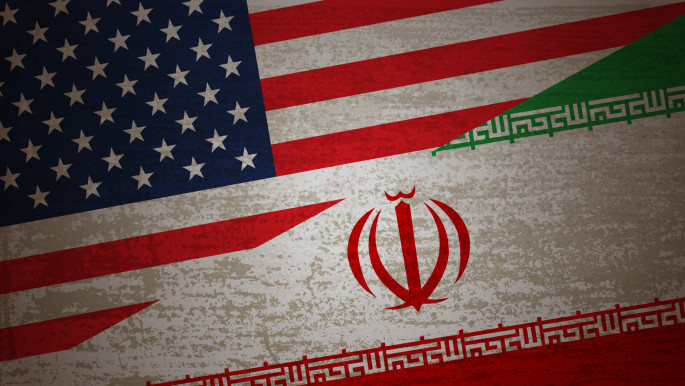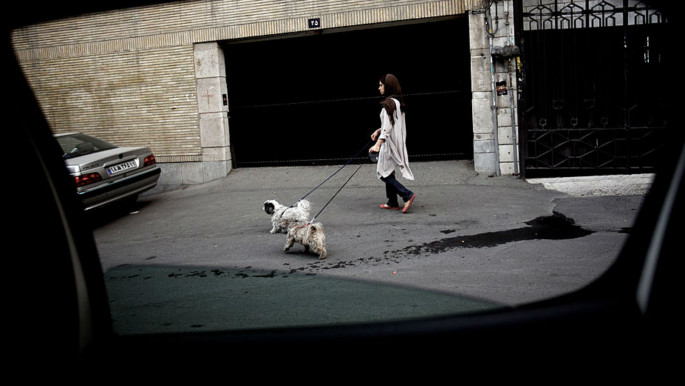US-Iran crisis: Fears of a negative impact on neighbouring countries
While Iran denies responsibility for the ship attacks, it has recently threatened to exceed enrichment limits allowed under the nuclear agreement.
These unprecedented tensions have put the region on the verge of a military escalation, which is more likely to involve neighbouring countries to Iran.
The end of optimism
There was optimism when Iran signed the nuclear agreement in 2015. Yet, a year after the US withdrawal from the agreement, this optimism has died.
Now remaining European signatories to the agreement find themselves torn between their will to implement their commitments to Iran by resuming trade relations despite US sanctions and their will to accommodate their American ally.
 |
|
| Read also: Are there any informative historical precedents for a US-Iran war? |
Through military pressure and economic isolation, Trump's administration aims to divert Iran from its aggressive foreign policy. Recently, US President Donald Trump warned Iran of devastating consequences in the event of any attack.
He tweeted on 25 June 2019: "Any attack by Iran on anything American will be met with great and overwhelming force. In some areas, overwhelming will mean obliteration. No more John Kerry & Obama!"
US Secretary of State Mike Pompeo also spoke about a "coalition that includes not only the Gulf states but also Asia and Europe."
This coalition is supposed to push back the "biggest sponsor of terror in the world," said Pompeo before traveling to the two major Arab allies in the region – Saudi Arabia and the United Arab Emirates. Pompeo's new coalition against Iran brings to memory the "Coalition of the Willing", which supported the US invasion of Iraq in March 2003.
What happens in Iran does not stay in Iran
A military escalation is more likely to have negative percussions on US allies in the region. Saudi Arabia, UAE and Israel are not far from being easy targets to Iranian missiles.
The Saudi Foreign Minister, Adel Al-Jubeir, said: "The international community is determined to push back against Iran's aggressive behaviour."
His statement came in London after Iran-backed Houthi rebels in Yemen reportedly hit a Saudi desalination plant with a sophisticated missile.
In addition to that and almost at the same time the US drone was shot down, there have been a string of rocket and mortar attacks on or close to US facilities in Iraq. It is hardly conceivable to believe that these simultaneous attacks are coincidental.
With a military escalation between the US and Iran, neither the inlands of Saudi Arabia nor those of Iraq are immune to direct attacks by Iran and its proxies in the region. This clearly applies to Israel as well because Iran-backed Hezbollah in Lebanon could launch attacks within Israeli territories. No matter how strong Israeli defence capabilities are thought to be, there are no guarantees there wouldn't be any causalities or destruction of infrastructures.
Unlike Saudi Arabia and Israel, the UAE is more in favour of a political solution to the crisis.
"Tensions in the Gulf can only be addressed politically. Crisis long in the making requires collective attention; primarily to deescalate & to find political solutions through dialogue & negotiations. Regional voices important to achieve sustainable solutions," tweeted the UAE minister of state for foreign affairs, Anwar Gargash, on Sunday, 23 June 2019.
 |
| Read also: The dangers of destroying Iran's middle class through sanctions |
As a neighbour to Iran, a military escalation could also pose a threat to the Emirates. As a precautionary measure, airline companies should avoid areas where aircrafts' safety is at risk. Thus, in case of a military escalation, UAE's airplanes must avoid the conflict area over the Gulf, which is a prescription for instability on both economy and security levels.
As a matter of fact, there are real fears of negative impact on neighbours outside the Gulf region as well. A military escalation, even if it was targeted, is more likely to ignite the whole region.
Pakistani Foreign Minister Shah Mehmood Qureshi fears that tensions between the US and Iran could also have a negative impact on the situation in neighbouring Afghanistan.
"Pakistan wants a negotiated solution to these tensions. I do not think increasing tensions in the region will help either the US, Iran or the entire region," Qureshi said.
Calls for de-escalation and dialogue
The UK, Germany and France issued a joint statement calling for "de-escalation and dialogue" in the midst of a "grave concern" over rising tensions in the Gulf region.
The British Foreign Secretary Jeremy Hunt told the Commons: "The US is our closest ally, we talk to them the whole time, we consider any requests that they say carefully, but I cannot envisage any situation where they request or we agree to any moves to go to war.
"The message we are sending with our partners in the European Union particularly the French and the Germans is that with respect to Iran's nuclear programme, this is a crucial week," he added.
Speaking at a gathering of Protestant churches on Saturday, 22 June 2019, German Chancellor Angela Merkel called for a peaceful solution to the crisis between the US and Iran.
"I say that (a political solution) should not just be a hope, but that it should be worked towards with the utmost seriousness. We can also help to make what we want – a political, diplomatic solution – possible," she said to an audience of around 10,000 people in Dortmund.
While calling for a political solution as well, French Foreign Minister Jean-Yves Le Drian warned that, "an Iranian breach of the agreement would be a grave mistake and a false response to US pressure."
In return, Iranian President Rouhani spoke by phone to his French counterpart Emmanuel Macron, after exchange of insults between the US and Iran.
"We have always been committed to regional peace and stability and will make efforts in this respect," the Iranian president said.
Hakim Khatib is a research fellow at the Frankfurt Research Centre on Global Islam at the Goethe University Frankfurt in Gemrany and the editor-in-chief of the Mashreq Politics and Culture Journal.
Follow him on Twitter: @MPCJournal





 Follow the Middle East's top stories in English at The New Arab on Google News
Follow the Middle East's top stories in English at The New Arab on Google News


